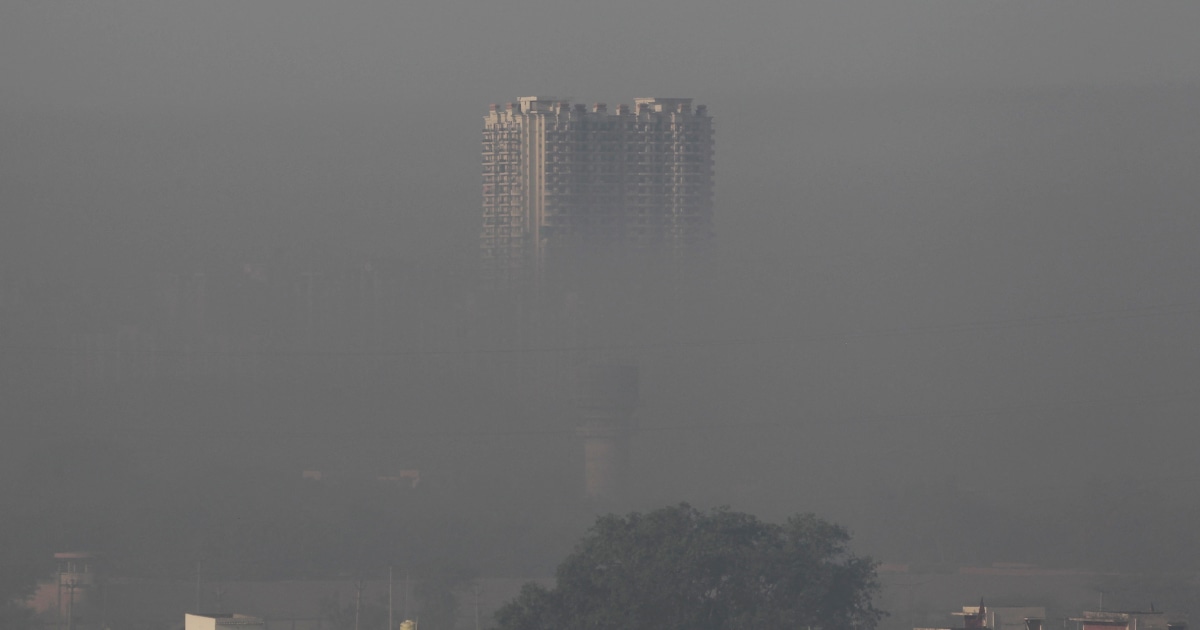- Get link
- X
- Other Apps
- Get link
- X
- Other Apps

Unprecedented CO2 Levels: Earth's Atmosphere Hits a Millennial Milestone
Alarm bells are ringing louder than ever as new data reveals a stark reality: Earth's atmosphere hasn't held this much carbon dioxide (CO2) in millions, potentially tens of millions, of years. This concerning milestone, confirmed by the National Oceanic and Atmospheric Administration (NOAA) and scientists at the University of California San Diego, paints a grim picture of our planet's health.
For the first time in recorded history, the global average CO2 concentration surpassed 430 parts per million (ppm) in May. This isn't just a number; it's a stark indicator of a planet grappling with the consequences of unchecked greenhouse gas emissions. Let's break down what this means:
- Record High: The 430 ppm reading is the highest ever recorded.
- Significant Increase: This represents an increase of more than 3 ppm compared to last year's levels.
- Insufficient Action: These measurements underscore that current efforts to curb greenhouse gas emissions are simply not enough.
“Another year, another record,” states Ralph Keeling, a professor at UC San Diego’s Scripps Institution of Oceanography. “It’s sad.”
The Greenhouse Effect and its Consequences
Carbon dioxide, a primary greenhouse gas released from burning fossil fuels, traps heat within the Earth's atmosphere. This trapped heat leads to a cascade of negative effects:
- Rising Global Temperatures: Higher CO2 concentrations contribute directly to global warming.
- Melting Polar Ice: As temperatures rise, polar ice caps and glaciers melt at an alarming rate.
- Rising Sea Levels: Meltwater from ice sheets contributes to rising sea levels, threatening coastal communities.
- Extreme Weather Events: Increased frequency and severity of hurricanes, droughts, and floods.
Since pre-industrial times, atmospheric CO2 has surged due to human activities. Crossing the 400 ppm threshold, once deemed unthinkable, occurred in 2013. Now, scientists warn that CO2 levels could reach a staggering 500 ppm within the next 30 years.
Uncharted Territory
We've entered uncharted territory. The last time Earth's atmosphere contained similar CO2 levels was likely over 30 million years ago, long before humans walked the planet. Back then, the climate was drastically different.
Keeling emphasizes the speed of this change: "It’s changing so fast... If humans had evolved in such a high-CO2 world, there would probably be places where we wouldn’t be living now. We probably could have adapted to such a world, but we built our society and a civilization around yesterday’s climate.”
The Keeling Curve: A Visual Representation of Change
CO2 levels are graphically represented by the Keeling Curve, named after Charles David Keeling, who began meticulous daily measurements of atmospheric carbon dioxide in 1958 at the Mauna Loa Observatory in Hawaii. The Keeling Curve vividly illustrates the steep increase in CO2 levels since the Industrial Revolution, directly linked to human-caused climate change.
In May, Ralph Keeling and his Scripps Institution of Oceanography colleagues recorded average atmospheric CO2 concentrations of 430.2 ppm. NOAA's Global Monitoring Laboratory, conducting separate daily readings since 1974, reported an average of 430.5 ppm in May.
These readings are crucial for understanding the extent of human influence on Earth's climate and provide essential insights into the planet's overall well-being.
Keeling aptly describes the significance of these measurements: "They’re telling you about your whole system health with a single-point measurement... We’re getting a holistic measurement of the atmosphere from really a kind of simple set of measurements.”
A Call to Action
The implications of these findings are clear: drastic and immediate action is needed to mitigate the effects of climate change. While the situation is undeniably serious, it's not too late to enact meaningful change. Reducing our reliance on fossil fuels, investing in renewable energy sources, and implementing sustainable practices are crucial steps towards a healthier planet. The future of our planet, and indeed, the future of humanity, depends on the choices we make today.
Source: https://www.nbcnews.com/science/climate-change/earth-co2-record-global-warming-rcna210974
atmosphere
Carbon dioxide
Climate change
CO2 levels
emissions
fossil fuels
global warming
greenhouse gas
NOAA
record high
- Get link
- X
- Other Apps
Comments
Post a Comment